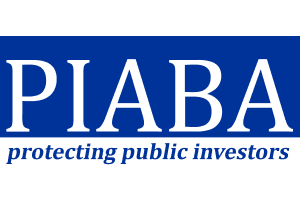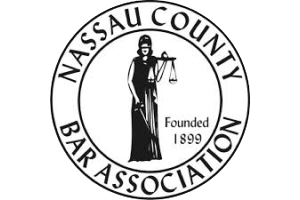- Free Consultation: (516) 526-3082 Tap Here to Call Us
FINRA Arbitrator Selection Process is Under Fire
What probably would’ve been lost in the weeds of a Georgia State Court decision vacating a FINRA Arbitration Award has now caught fire and the eyes of the entire financial services and legal community. Judge Belinda E. Edwards, a State Court Judge in Fulton County Superior Court, vacated a 2019 decision in which Wells Fargo successfully defeated an investor’s $1.7 million damage claims over investment losses. The FINRA Award was vacated based in part on “grounds that the Financial Industry Regulatory Authority (“FINRA”) administrators had allowed Wells Fargo and an outside lawyer to ‘manipulate’ the arbitrator selection process.1 Specifically, “a FINRA dispute resolution director improperly granted Wells Fargo’s request to strike two arbitrators, including one from a computer-generated ‘neutral’ list, as part of an unwritten side agreement between the regulator and Wells’ lawyer.”2
Judge Edwards in her opinion emphatically stated that:
“Permitting one lawyer to secretly red line the neutral list makes the list anything but neutral, and calls into question the entire fairness of the arbitral forum,”
As primarily a Claimant/Investors rights attorney and proud member of the Public Investors Advocate Bar Association (PIABA), I can solemnly say that winning a FINRA Arbitration is an uphill battle. As outlined in my other article posted here regarding the “Stock Loss Recovery Claims Process,” from filing the Statement of Claim and taking the case all the way though a FINRA Evidentiary Hearing, the process can be daunting. Respondent/Brokerage Firms are at a clear advantage in having far greater resources than the average investor which plays a significant role in the management of a claim. My clients are often times depressed by their investment losses and fear expending any more time and resources to pursue a FINRA Arbitration claim. Throughout the entire FINRA Dispute Resolution process leading up to the Final Award, my clients feel that the chips are stacked against them. I, like many of my colleagues in the Claimant/Investors rights bar, have to constantly reassure our clients that the judicial process can be tiresome, but it is fair and just at the end.
But sadly it’s news like this that makes us push our heads back on our seat and look-up at the sky for some type of justification. Unfortunately, there is none and for good measure. Something has to change.
Imagine having a jury trial where you’re facing possible life in prison or even capital punishment and the Prosecution is allowed to secretly remove possible jury candidates before voir dire (jury selection); and even beyond that the Prosecution has the Judge remove certain members of the already appointed jury based on ex parte (communications with only one side – The Prosecution). The aftermath of such a gut-wrenching and infuriating discovery would certainly lead to removal of the particular Judge, disbarment of the prosecuting attorney, and hopefully some type of rehabilitation of the Defendant.
So what will be the aftermath of a similar discovery made in a FINRA Arbitration matter? The Public Investors Advocate Bar Association called for “an immediate investigation” by the Securities and Exchange Commission and hearings in Congress “as to FINRA’S operation of its arbitration forum. The secret agreement undermines the very neutrality of the computerized system,” it added, referencing the “surprising revelation of a corrupted arbitrator appointment system.” FINRA has of course responded the same way their friends in the brokerage industry would respond and denied the existence of any type of agreement between themselves and any firm.
The attorney involved in the tampering of the FINRA Arbitration selection process is Terry Weiss, a partner at Maynard Cooper & Gale in Atlanta – he represented Wells Fargo in the underlying FINRA Arbitration which was later vacated by Judge Edwards. I strongly believe that this is just the tip of the iceberg. The incentive for FINRA and their arbitrators to have implicit bias and make explicit “back-room” deals is too tempting to resist. FINRA’s bread and butter are the fees they collect from brokerage firms and their registered representatives. Keeping them in business, keeps FINRA in business. Plain and simple.
And FINRA arbitrators are nothing “special.” The FINRA arbitrator training is remedial and anyone from a former Chief Financial Officer to a Supermarket cashier can qualify to serve as an arbitrator. This laissez-faire attitude that FINRA has towards selecting arbitrators and monitoring arbitrator conduct has brought us to where we are now. FINRA arbitrators have nothing compelling them to give investors a fair and just dispute resolution process. But they certainly do have an incentive of siding with a brokerage firm where they or a family member can yield some type of business from today or in the future.
I can say with a strong sense of passion and confidence that PIABA will continue to fight for the rights of investors. We’ve are already setting meetings with congressional offices and discussing the matter with the SEC. The fight rages on.
1 See “Judge Rebukes Finra Arbitration in Vacating Wells Fargo Award” article.
2 Id.










